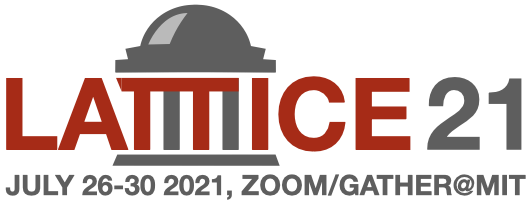Speaker
Description
Some aspects of quantum systems with non-unitary dynamics are well-described by non-Hermitian effective Hamiltonians. Such systems contain a wealth of interesting physics such as their phase structure, eg. QCD at finite Baryon density, which describes cores of neutron stars. Classical simulation of general non-Hermitian Hamiltonians is rendered difficult, and in some cases, impossible due to the sign problem. Quantum computers offer the promise of solving this issue, but contemporary quantum computers in the Noisy Intermediate Scale Quantum (NISQ) era are not capable of simulating complicated field theories. Simpler, open field theories on small lattices, with the axiom of locality/sparsity, however, are amenable for simulation on near-term devices. We simulate non-unitary dynamics by embedding the system of interest in a larger unital one via ancillary qubits and use measurements on the ancillas to extract the desired dynamics. The price of doing this are the inevitable quantum jumps, which put the system in an error state. In this talk, two measurement-based prescriptions will be presented for simulating general non-Hermitian Hamiltonians. We apply these quantum channels to the well-studied 1-D quantum Ising chain with an imaginary longitudinal magnetic field and show that the channels are sensitive to the exceptional points, which in the thermodynamic limit corresponds to the Lee-Yang Edge singularity, despite quantum jumps.
